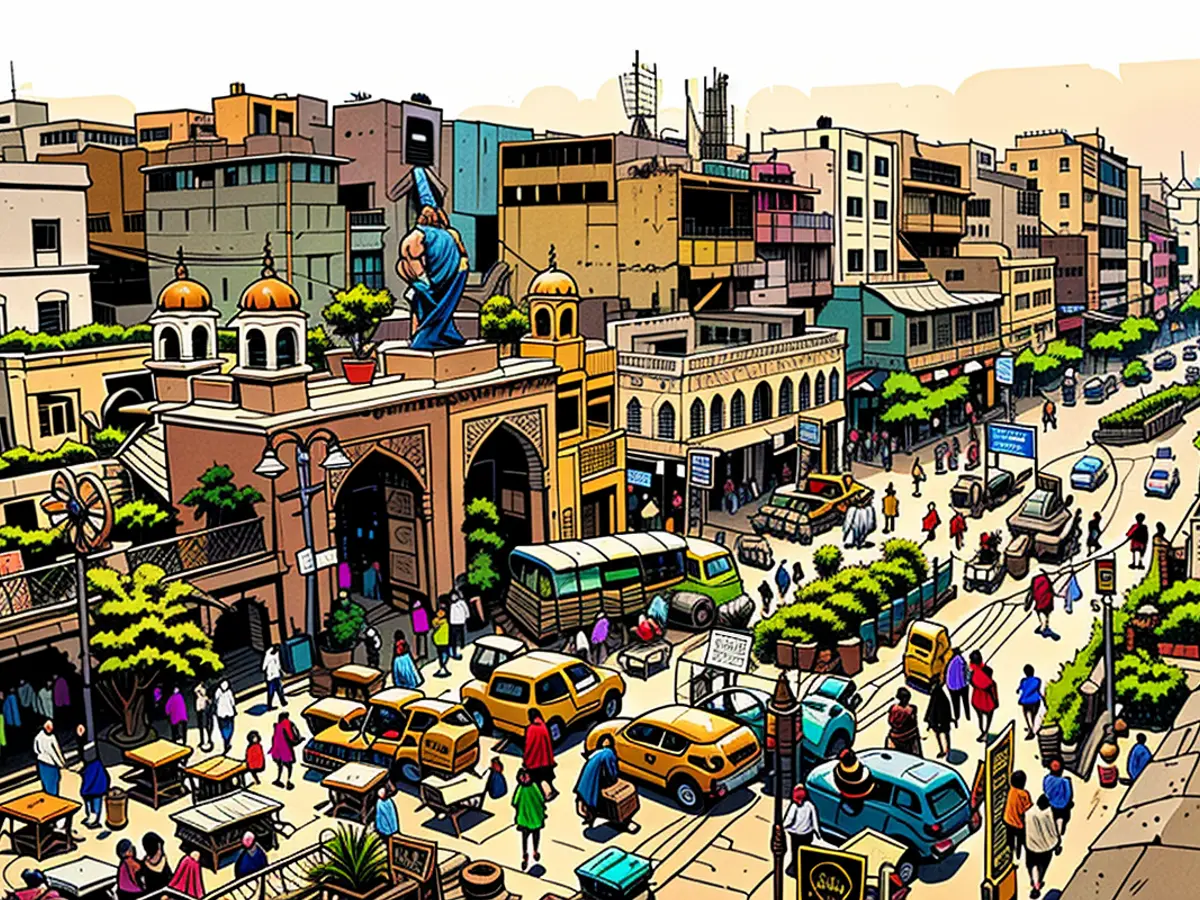Care for refugees - Ramelow: Payment card for refugees in Thuringia is coming
According to Minister President Bodo Ramelow (Left Party), a payment card for asylum seekers is to be introduced throughout Thuringia in the coming months. "I want to move away from cash to non-cash", said Thuringia's head of government on Wednesday at the meeting of the administrative districts in Erfurt. As part of the budget compromise with the CDU parliamentary group, the introduction of a payment card in Thuringia over the next twelve months had been agreed. "We know that we can't go on like this with cash." The President of the Thuringian State Administration Office, Frank Roßner, also spoke out in favor of a state-wide introduction.
"No ideological debate"
Ramelow said on the sidelines of the district meeting that he had also spoken out in favor of switching to a non-cash procedure for the care of refugees at the conference of state premiers with the federal government. He did not want to have an "ideological debate" about this. Thuringia will also be guided by the ruling of the Federal Constitutional Court, which concerns the payment of pocket money for refugees. According to the Left Party politician, it is important to him to have a uniform nationwide regulation. For him, the focus of the refugee debate is on integration through and via work, said Ramelow.
So far, Bavaria in particular has set the pace for the introduction of a payment card. According to the government, they are to be introduced there in spring 2024. In Thuringia, CDU parliamentary group leader Mario Voigt had put pressure on the government to switch from cash benefits to benefits in kind.
Two districts test systems
How the changeover could take place in Thuringia is to be examined in the near future. The experiences of the districts of Greiz and Eichsfeld, which have had payment cards for several weeks, are also important for this. The district administrator of Greiz, Martina Schweinsburg (CDU), said that she wanted to extend the test to more people as soon as possible; there have been a few dozen for around two weeks. The district administrator of the Eichsfeld district, Werner Henning (CDU), expressed a similar view. The payment card is not a punishment of people, said Henning at the district meeting. It would be tested with 60 refugees.
Ramelow approached the district councils in the highly controversial debate on the right migration policy in recent months and admitted that the red-red-green state government had made mistakes in creating accommodation for refugees in state facilities. He could "only apologize" for this. Schweinsburg, who is also President of the Landkreistag, called for binding and quick solutions from the state for more initial reception places in 2024 as well as 100% funding of the refugee costs by the state, which the municipalities have.
In addition to the political debate, there are purely pragmatic reasons in favor of a payment card, the President of the Thuringian State Administration Office told the German Press Agency.
Great effort with cash
"If I pay out money once in Suhl with the occupancy figures we have now, it means that our people have to prepare 1400 envelopes with money," said Roßner. The effort involved is immense. In addition, there are sometimes limits for transporters of cash; not all providers can transport such large sums. There are also security issues on site. "The payment card, as I understand it, is more due to this emergency situation."
Refugees are paid a certain amount in cash in the state's initial reception facilities, which is used to cover the "personal needs of asylum seekers in their daily lives", according to the state administration office. The legal basis for this is the Asylum Seekers' Benefits Act, which also determines the amount of the payment. "The cash benefits are freely available to asylum seekers," said a spokesperson for the authority. The payment is often referred to as a kind of pocket money.
Read also:
- A clan member is punished here
- Traffic lawyer warns: Don't talk to the police!
- Will he be convicted as Jutta's murderer after 37 years?
- He also wanted to kill his cousin
- The red-red-green coalition in Thuringia, led by Bodo Ramelow, has agreed with the CDU parliamentary group to introduce a payment card for refugees over the next twelve months as part of a budget compromise.
- Bavaria has been leading the way in the introduction of payment cards for refugees, with plans to introduce them in spring 2024.
- In Thuringia, the districts of Greiz and Eichsfeld have been testing payment cards for refugees for several weeks, and their experiences will be important for determining how the changeover could take place in the state.
- CDU district administrator Martina Schweinsburg from Greiz wants to extend the test to more people as soon as possible, while CDU district administrator Werner Henning from Eichsfeld shares this view.
- Thuringia's President of the State Administration Office, Frank Roßner, mentioned pragmatic reasons in favor of a payment card, pointing out the immense effort involved in distributing cash benefits, including the preparation of envelopes, transportation limits, and security issues.
- The Federal Constitutional Court's ruling regarding the payment of pocket money for refugees will guide Thuringia's approach to the issue, with Ramelow emphasizing the importance of having a uniform nationwide regulation.
Source: www.stern.de








